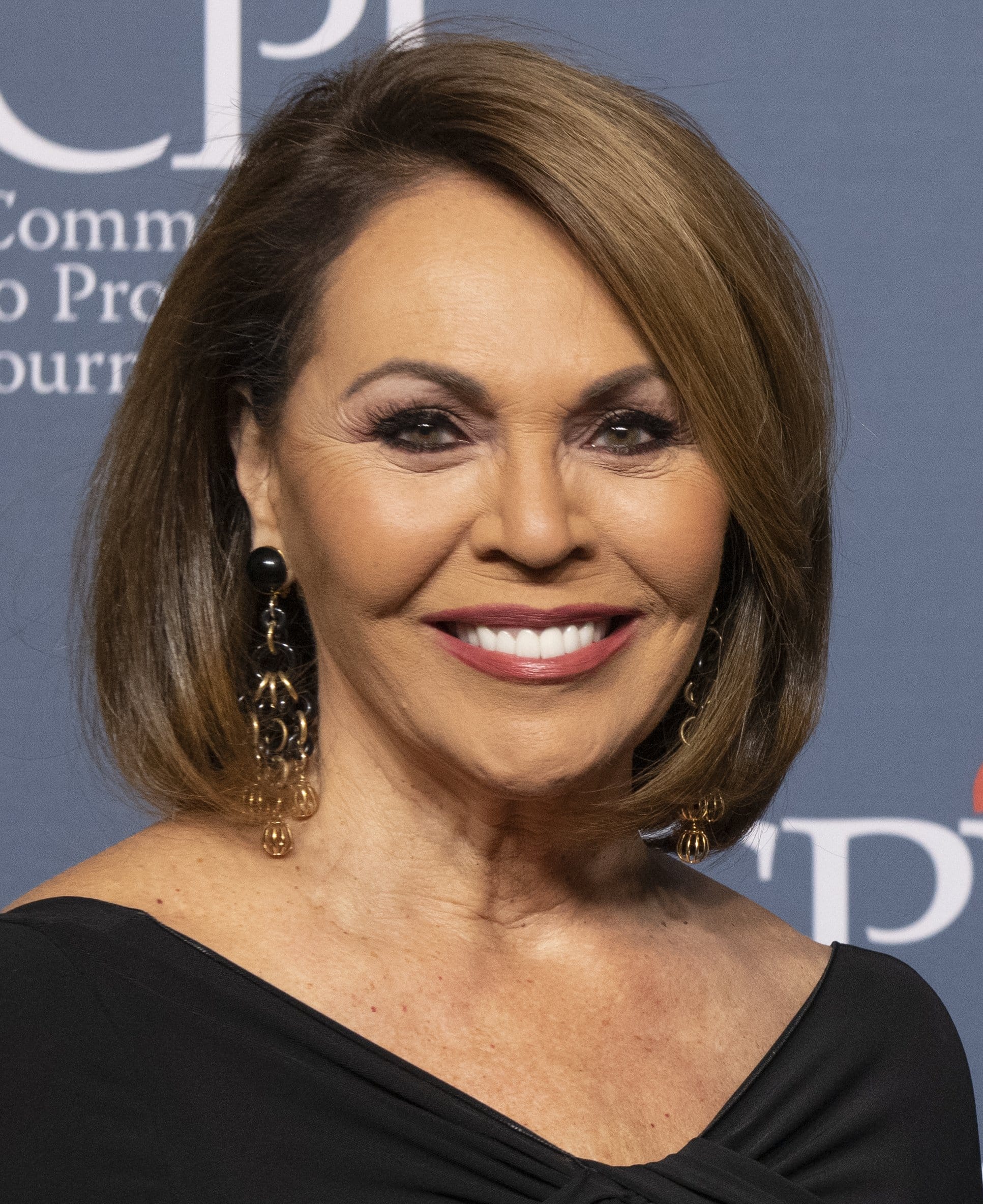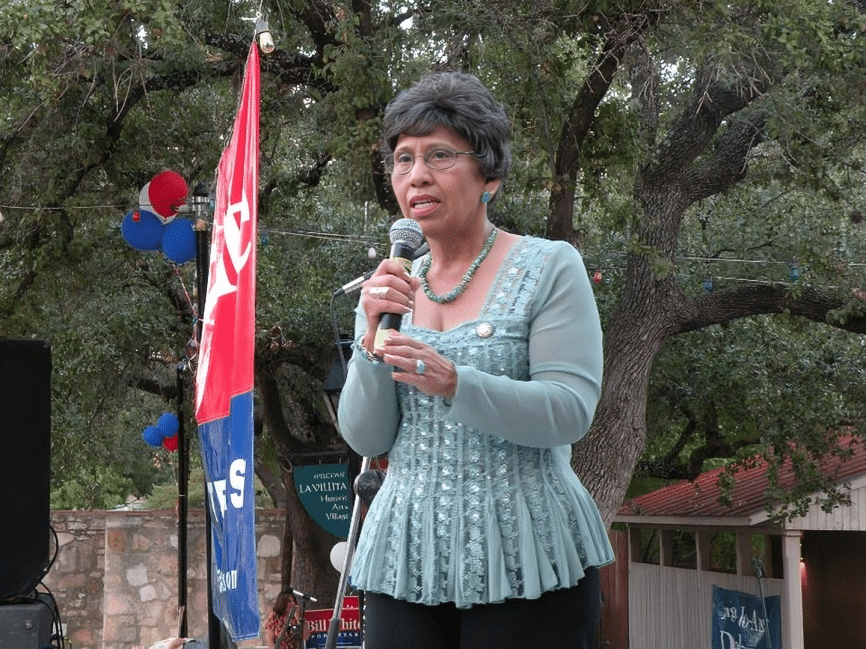5 Trailblazing Latinas Who Paved the Way
In this new installment of “Latinas Who Lead,” we celebrate the journeys of 5 trailblazing Latinas who aren’t often in the spotlight but should be.

Our Fourth Installment of the “Latinas Who Lead” Series
Our summer series “Latinas Who Lead” highlights the myriad of ways in which Latinas have defied expectations, shattered glass ceilings, and paved the way for future generations. Through their hard work, passion for making a difference, and incredible achievements across fields, they’ve opened important doors and provided empowering representation for Latinas in the U.S. and beyond. In this new installment, we celebrate the journeys of 5 trailblazing Latinas who aren’t often in the spotlight but should be.
Katherine Archuleta

Katherine Archuleta‘s entire career has been dedicated to public service, and her deep commitment to others is an inspiration for Latinas and anyone, really, who wants to work in politics to make a difference. Beginning as an elementary school teacher in Denver, Archuleta quickly transitioned to influential roles in local government, serving under Denver Mayors Federico Peña and John Hickenlooper. Her journey in public administration reached new heights when she served as Deputy Chief of Staff and later Chief of Staff at the U.S. Department of Transportation and as Senior Advisor at the U.S. Department of Energy during the Clinton Administration.
Archuleta’s groundbreaking appointment by President Barack Obama in 2013 as the first Latina to lead the U.S. Office of Personnel Management was a significant milestone in her career. In this role, she oversaw the recruitment, hiring, and development of federal workers, impacting the lives of thousands across the nation.
Archuleta is also the co-founder of the Colorado Latina Initiative, and she has been instrumental in implementing voter engagement programs that have empowered Latina and marginalized voters. Her work has been recognized nationally and locally, including her induction into the Colorado Women’s Hall of Fame in 2020. Today, she continues to serve on various boards, including the Denver Urban Renewal Authority, Conservation Colorado, and Planned Parenthood of the Rocky Mountains. Her dedication to public service is an inspiration to future generations of Latinas looking to pursue impactful careers in public policy.
Rosie Castro

Maria del Rosario “Rosie” Castro’s life is also a dedication to public service and activism. Raised in a San Antonio “barrio,” Castro was deeply influenced by the racial and economic disparities she witnessed growing up. Her passion for social justice led her to Our Lady of the Lake University, where she began her journey in activism with the Young Democrats. Castro’s career as a civil rights activist and educator is marked by her involvement in several prominent organizations, including the Mexican American Youth Organization and the Raza Unida Party.
Her dedication to improving her community saw her run for San Antonio City Council in 1971, a campaign that laid the groundwork for future Latina political leaders. In 2023, at the age of 75 and 52 years after she first ran, Castro was appointed as the interim councilperson for San Antonio’s District 7. Her appointment is a testament to her commitment to civil rights and activism, which has also influenced her sons Julian and Joaquin Castro, who both pursued careers in politics.
Julian is a lawyer who served as mayor of San Antonio from 2008 until 2014, when he joined Obama’s cabinet. Julian later ran for President in the 202o election cycle, where now President Joe Biden ultimately prevailed in the crowded primary field. Joaquin, Julian’s twin brother, is a Congressman in Texas’s 20th district and serves on the United States House Committee on Foreign Affairs and the United States House Permanent Select Committee on Intelligence.
Castro’s activism and grit haven’t only influenced her sons, but have also inspired countless others in her community. To this day, her work emphasizes the importance of representation and the power of community engagement.
María Elena Salinas

María Elena Salinas is a trailblazer in journalism. She built a successful career based on her commitment to delivering trustworthy news that resonates with the Latino community. Born to Mexican immigrants in Los Angeles, Salinas’ career began at KMEX-TV, the Univision affiliate in Los Angeles, in 1981. She quickly rose through the ranks, becoming the co-anchor of Noticiero Univision and co-host of “Aquí y Ahora.”
Throughout her career, María Elena has interviewed countless influential figures, including Latin American heads of state and U.S. presidents. Her work has earned her the title “Voice of Hispanic America,” which reflects her impact on journalism. But her impact doesn’t stop at her work product. Salinas was also a stark departure from the scantily clad, usually white women scattered throughout the network. For young bilingual women growing up with Univision, Salinas was a vivid reminder that women were capable of more than just being paraded around for the male gaze.
Salinas’ departure from Univision in 2017 marked the end of an era, but she continues to make her mark on journalism as a contributor for CBS News and ABC News. Her dedication to journalism and her community also translates into her philanthropic efforts, including her involvement with the National Association of Hispanic Journalists and the Hispanic Scholarship Fund. Salinas continues to break barriers in the male-dominated, white-dominated space of journalism, offering an example of journalism integrity and paving the way for future generations of Latina journalists.
Linda Chavez-Thompson

Linda Chavez-Thompson’s journey from a labor organizer to a national labor leader is nothing short of remarkable. Born to a Mexican-American family in Lubbock, Texas, Chavez-Thompson began her career as a secretary at the Construction Laborer’s Local 1253. Her passion for labor rights quickly allowed her to reach leadership roles within the American Federation of State, County, and Municipal Employees (AFSCME).
In 1995, Linda made history as the first person of color elected to one of the top three positions in the AFL-CIO, serving as Executive Vice President until 2007. Her leadership and advocacy for workers’ rights have had a profound impact on the labor movement, particularly for Latino and female workers. Chavez-Thompson’s influence extends beyond her union work; she has also served as vice chair of the Democratic National Committee and on the board of the United Way of America.
Her candidacy for Lieutenant Governor of Texas in 2010 is just another example of her dedication to public service. Linda Chavez-Thompson’s entire career was dedicated to improving the lives of workers and advocating for equal opportunities. Within the labor rights space, she’s a Latina figure who truly stands out as inspiring and impactful. At 79 years old, she continues to contribute to the labor rights movement as a thought leader and trailblazer. Her latest appearance was at the Texas AFL-CIO Women’s Summit 2024.
Maria Contreras-Sweet

Maria Contreras-Sweet is another trailblazing Latina leader who has made her mark in both public service and business. Born in Guadalajara, Mexico, Contreras-Sweet immigrated to Los Angeles, California, at a young age, and that’s where she would carve out a career based on advocacy and innovation. With a bachelor’s degree from California State University, Contreras-Sweet went into public service, entrepreneurship, and corporate leadership.
She founded the ProAmérica Bank in 2006 to empower small to medium businesses, nonprofit organizations, and professional services firms, particularly within the Latino community. ProAmérica Bank was acquired by Pacific Commerce in 2015. Contreras-Sweet also ventured into private equity with Rockway Equity Partners, focusing on technology, manufacturing, and infrastructure investments.
Contreras-Sweet’s impact reached new heights when she was appointed by President Barack Obama as the 24th Administrator of the U.S. Small Business Administration (SBA) from 2014 to 2017. In this role, she facilitated access to capital, technical assistance, and federal contracts. Her tenure was marked by groundbreaking initiatives that modernized the SBA and expanded its global market reach, resulting in record-breaking achievements in lending and contracting support for small businesses.
Before her federal appointment, Contreras-Sweet held pivotal positions in California state government, notably serving as Secretary of the Business, Transportation, and Housing Agency under Governor Gray Davis. Beyond her corporate and governmental roles, Contreras-Sweet is the founding director of The California Endowment and Hispanas Organized for Political Equality (HOPE).
These five remarkable women have excelled in their fields and paved the way for future generations of Latinas who want to follow in their footsteps or choose any path of their own. Trailblazing women are often forgotten in the footnotes of history, but by keeping their work alive, we remind others how far we’ve come and also how much further we can go.
Stay tuned for the next installment of our “Latinas Who Lead” series, where we continue to celebrate the incredible achievements of Latina women of incredible power and impact.




